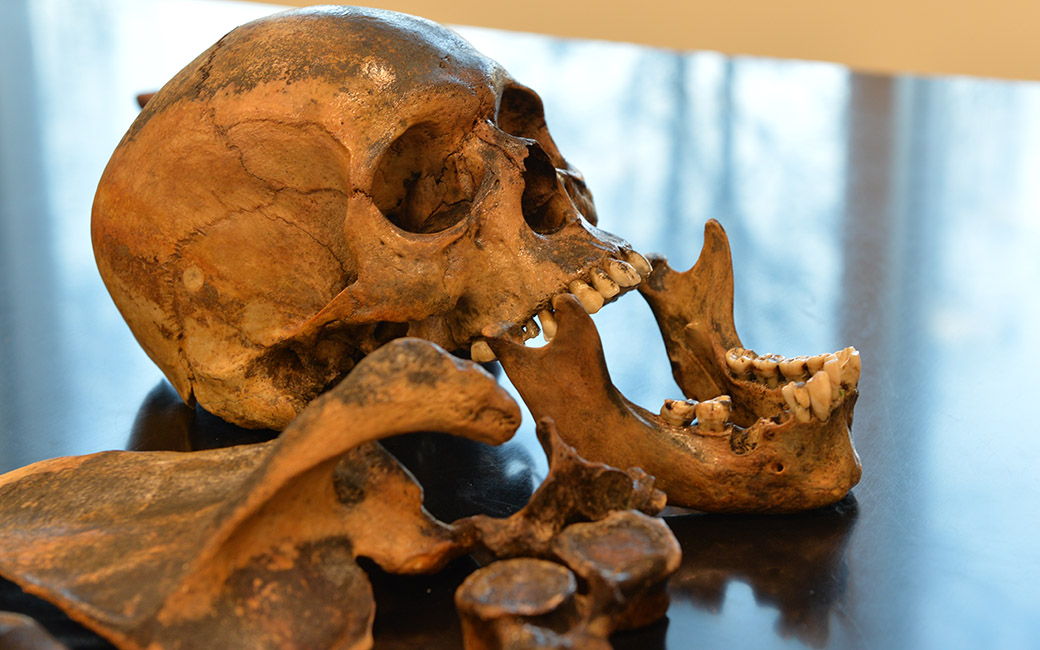Forensic Chemistry Bachelors Program
Students study major areas of forensic science that will prepare them for positions in forensic science or other natural science.
The TU Human Remains Identification Laboratory (THRIL) was formed to support student learning in next generation sequencing (NGS) methods and enable high quality student and faculty research and community collaboration using pyrosequencing and massively parallel sequencing (MPS).

THRIL was established in 2018 with support from two FCSM Endowment grants and new building funds. The MiSeq instrument was funded by NSF support (B. Masters, PI) and upgraded to a Verogen MiSeq FGx through a FCSM Endowment grant. In addition, a FCSM Endowment grant supported the addition of the Verogen Universal Analysis Software and the upgrade to enable mitochondrial DNA interpretation was funded by the Provost’s Budget Office.
Faculty members from THRIL have supported the work of Jennifer Jordan Hall, KYK9 Search and Reunite Services, and the Maryland Department of Transportation through a collaboration with Dana Kollmann, Department of Sociology, Anthropology, and Criminal Justice.
THRIL provides state of the art DNA extraction, quantitation, and analysis services for human body fluids and human remains. THRIL also offers analysis for Cannabis DNA.
We work closely with law enforcement agencies including the Baltimore Police Department and Maryland State Police Forensic Sciences Division and suppliers including QIAGEN, LLC, located in Germantown, Maryland, Verogen MiSeq FGx based in San Diego, California, Gentueri, Inc. based in Madison, Wisconsin, and Stellar Scientific, located in Baltimore, Maryland.
Quotes available upon request and will vary depending upon the number of samples and services selected.
Information provided by THRIL is for information purposes and not for entry or upload to DNA databases or databanks or used for legal purposes that require analysis be conducted by an ISO or ASCLD-LAB accredited laboratory.
THRIL is located in rooms 5325 (Verogen Teaching Research Lab) and 5328 (Qiagen Research Lab) of TU’s new, state-of-the-art 220,000 square foot Science Complex.
TU offers a B.S. in Forensic Chemistry and a M.S. in Forensic Science.
FRSC 422 Advanced Sequencing Methods (LEC/LAB, 3 credits)
Theory and application of DNA sequencing technology including Sanger sequencing, pyrosequencing,
and massively parallel sequencing and their uses in forensic DNA analysis. Five lecture/laboratory
hours. Prerequisites: (FRSC 420 and MATH 237) or permission of instructor.
FRSC 622 Advanced Sequencing Methods (LEC/LAB, 3 credits)
Theory and application of DNA sequencing technology including Sanger sequencing, pyrosequencing,
and massively parallel sequencing and their uses in forensic DNA analysis. Five lecture/laboratory
hours. Prerequisites: FRSC 621 Advanced DNA Technologies or permission of instructor.
Lectures and trainings are available to private groups. Contact us to discuss this opportunity.
Kelly Elkins, Ph.D.
kmelkins AT_TOWSON
Professor
410-704-6217
Chemistry & Forensic Science Department
SC 3301F
Profile webpage
TU Wordpress Site
Cynthia Zeller, Ph.D.
czeller AT_TOWSON
Associate Professor
410-704-2170
Chemistry & Forensic Science Department
SC 5130B
Adam Klavens, M.S.F.S.
aklavens AT_TOWSON
Adjunct Professor
Chemistry & Forensic Science Department
SC 3301S